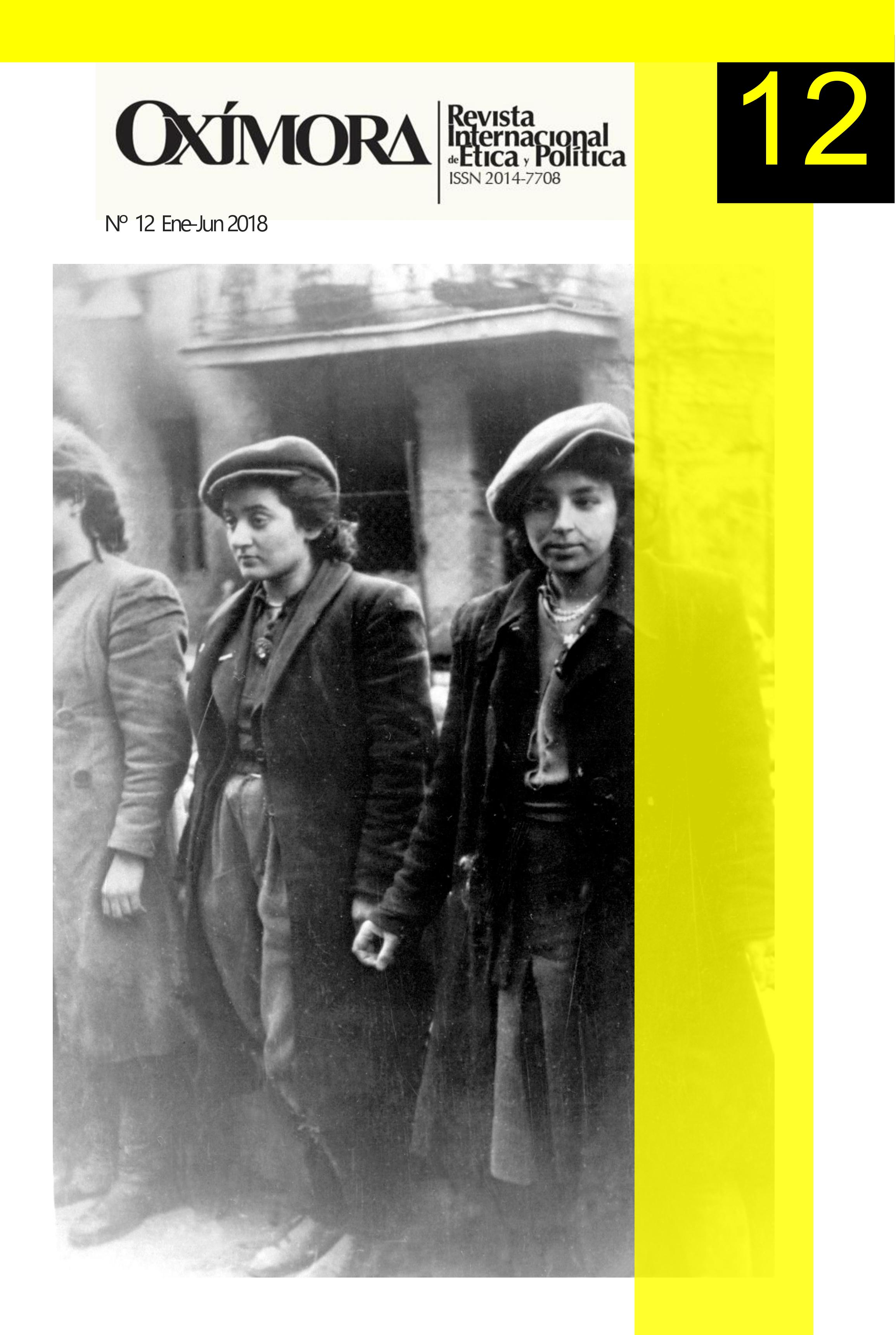The concept of citizenship in Etienne Balibar and the new Zapatista strategy. Responses to governance
DOI:
https://doi.org/10.1344/oxi.2018.i12.20637Keywords:
Balibar, Neo-Zapatista movement, citizenship, subject, emancipating, transformingAbstract
The article analyses the category of citizenship in the philosophy of Etienne Balibar and relates it to the Neo-Zapatista movement of Chiapas. For the French philosopher, this notion is complemented by that of subject, while containing an emancipating and transforming force, as it refers to the process by which the subjects, subjects of politics and subjects to politics acquire rights. When thinking of its inherent tension, the category appears as a practice that would account for collective actions designed to include the excluded regarding "the right to have rights", as the Zapatistas have done.References
Agamben, Giorgio, (2002), Moyens sans fins. Notes sur la politique, Paris: Payot- Rivage.
Aguirre Rojas, Carlos Antonio (2010), Les leçons politiques du néozapatisme mexicain. Commander en obéissant, Paris: L’Harmattan.
Althusser, Louis, (1996), Positions, Paris: Éditions sociales.
Antón González, Eva (2010), «Las paradojas del movimiento zapatista», en Revista Paz y Conflicto. No. 3, 2010. Disponible en: http://redalyc.uaemex.mx/src/inicio/ArtPdfRed.jsp?iCve=205016387010 [consultado el 3 de septiembre del 2017].
Arendt, Hannah, (2002), La condition de l’homme moderne, Agora: Paris,
Balibar, Étienne, (1992), Les frontières de la démocratie, Paris: La Découverte.
Balibar, Étienne, (1997), La crainte de masses. Politique et philosophie avant et après Marx, Paris: Galilée.
Balibar, Étienne, (2001), Nous, citoyens d’Europe ? Les frontières, l’État, le peuple, Paris: La Découverte.
Balibar, Étienne, (2002), Droit de cité, Paris: PUF.
Balibar, Étienne, (2010), La proposition de l’égaliberté. Essais politiques 1989-2009, Paris: PUF.
Balibar, Étienne, (2010), «De l’extrême violence au problème de la civilité», Violence et civilité. Wellek Library Lectures et autres essais de philosophie politique, Paris: Galilée, pp. 39-48.
Balibar, Étienne, (2011), Citoyen Sujet et autres essais d’anthropologie politique, Paris: PUF.
Balibar, Étienne, (2012), «Los dilemas históricos de la democracia y su relevancia contemporánea para la ciudadanía», en Enrahonar. Quaderns de Filosofia, nº48, Servei de Publicacions Universitat Autònoma de Barcelona, Barcelona.
Basterra, Gabriela, Glasson Deschaumes, Ghislaine, Ivekovic, Rada, y Naishtat, Francisco, (2010), «Entretien avec et entre Étienne Balibar et Ernesto Laclau» en Rue Descartes, nº67, «Quel sujet politique?», Collège international de philosophie, París: PUF.
Bensaïd, Daniel (2007), «Althusser et le mystère de la rencontre», consultado el 29 de enero de 2017, Marx au XXIe siècle : l’esprit et la lettre, en: http://www.marxau21.fr/index.php?option=com_content&view=article&id=86:althusser-et-le-mystere-de-la-rencontre&catid=29:althusser&Itemid=55#_ftn48
Caloz-Tschopp, Marie-Claire, (2004), Le devoir de la fidélité à l’État entre servitude, liberté, (in)égalité, Paris: L’Harmattan.
Deleuze, Gilles, (1990), Pourparlers 1972-1990, París: Les Éditions de Minuit.
Élias, Norbert, (2011), El proceso de civilización, México: FCE.
Foucault, Michel, (1994), Dit et écrits III. (1976-1979), Paris: Gallimard.
Mouffe, Chantal (2014), Agonistique: Penser poliquement le monde, París: Beaux-Arts de Paris éditions.
Nancy, Jean-Luc, (1989), «Après le sujet qui vient», Cahiers Confrontation, nº. 20, invierno-, Paris: Aubier-Montaigne.
Morey, Miguel (2014), Escritos sobre Foucault, Madrid/México: Sexto Piso.
Rancière, Jacques, (1995), La Mésentente. Politique et philosophie, Paris: Galilée.
Downloads
Published
How to Cite
Issue
Section
License
a) Authors retain copyright and grant the journal the right of first publication.
b) Texts will be published under a Creative Commons Attribution License that allows others to share the work, provided they include an acknowledgement of the work’s authorship, its initial publication in this journal and the terms of the license.



